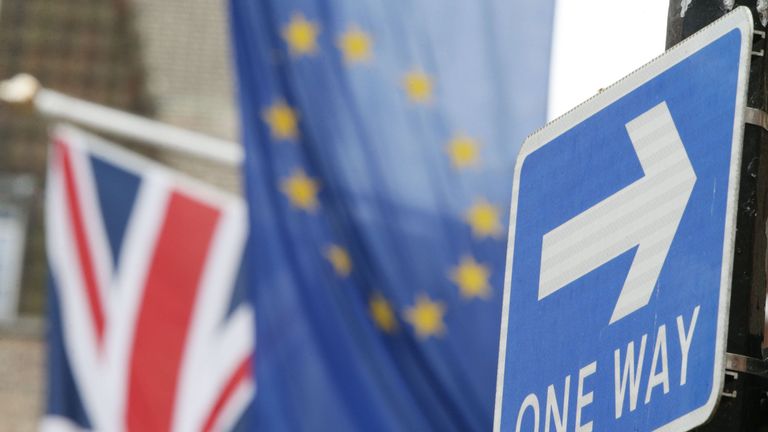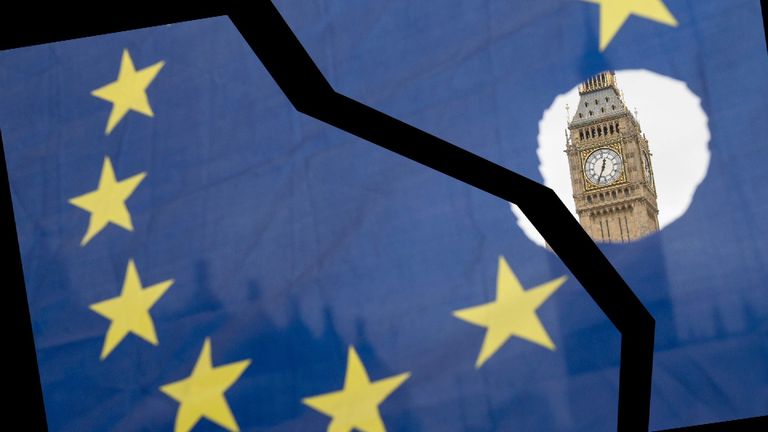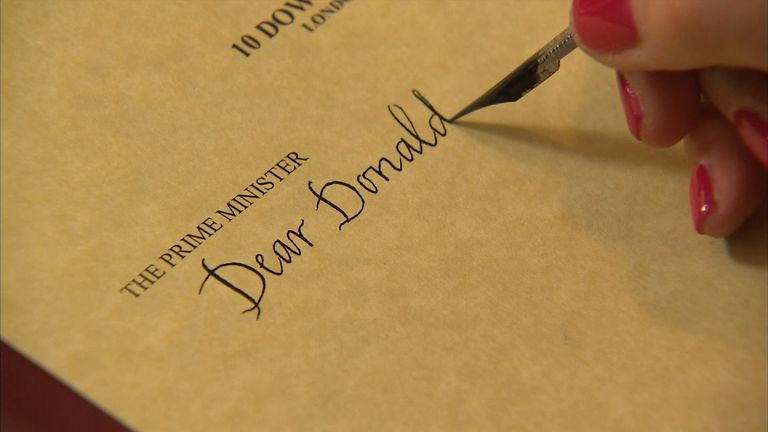Is there anything beyond Brexit for Theresa May's Government?
With crises on the UK domestic front, Sky's political correspondent Tamara Cohen wonders if everything else is on the back burner.
Friday 31 March 2017 20:12, UK
Nine months on from referendum result, the ball is rolling on Brexit and the daunting workload involved is becoming clearer.
But while Theresa May will be remembered as the Prime Minister who steered Britain out of the European Union, is there room for anything else? It's an active debate at the heart of Government.
The reasons are obvious. Today's newspapers lead on the acute pressures on social care, with a damning report from MPs showing funding is in freefall.
Elderly people who pay their own way (because they have assets of more than £23,250) are being charged even more to cover the increasing toll of those whose care is covered by the state.
Meanwhile, the NHS - which featured heavily in the Leave campaign - has axed its 18-week limit for operations. The four-hour A&E target limps on, but the last time it was met was the summer of 2015.
In one horrifyingly case, Kayden Urmston-Bancroft, aged 20 months, died after his operation was cancelled for three days running. Such a story would once have had a Government on the ropes.
Schools funding is also on the political agenda in a way it hasn't been for years, with parents asked to buy their own textbooks as head teachers grapple with funding gaps.
For patients awaiting operations, parents worried about school places and the legions of young people working but with no hope of buying a home, there are more immediate concerns than Brexit over the next two years.
Theresa May is acutely aware of all this. She declared in her party conference speech in October that the referendum vote was "not just a vote to withdraw from the EU, it was about something broader".
"It was about a sense deep, profound and let's face it often justified - that many people have today that the world works well for a privileged few, but not for them."
The Queen's speech on 17 May is a chance, Tory MPs say, to put her sentiment - about broken markets, burning injustices and building infrastructure - into action. But it will be dominated by Brexit-related bills.
"There will be some domestic stuff, but all likelihood it will be Brexit with bells on", a senior Conservative tells me.
A relatively quiet group of MPs and ministers believe making the most of Brexit means turbo-charging economic reforms now to meet the need of the future - on skills, apprenticeships and rebalancing the economy away from London and the financial services sector.
"We need to prepare for global Britain now, or we're just promising jam tomorrow. But there's real debate about whether the Government has the bandwidth for it", says one figure familiar with discussions in Number 10.
Education and skills and a bill about workplace practices are expected to feature in the speech, but they won't be the headlines. Deep thinking about public services is under way, but in the medium term there are only sticking plasters.
If Mrs May is constrained by her small majority, she is also immeasurably helped by the lack of credible opposition. Her party retain a significant poll lead on almost every issue apart from the NHS, on which Labour have a slim lead.
In polls asking the public what issues they are concerned about, leaving the EU has been at the top of the agenda since June. But Joe Twyman of YouGov explains that this isn't quite what it seems.
He said: "The impact Brexit has on all those issues - from the economy to health and immigration - means that they're all judged through that prism now. If promises aren't delivered on health or immigration, the Tories could still take a big hit in the polls."
The scale of the Brexit challenge is setting in. Hundreds of sittings of Parliament are expected to be devoted to arranging 40 years of EU legislation onto our statute books.
Whitehall must set up a new immigration system, repatriate business regulation, farming subsidies, environmental protections and all manner of other things.
There's the prospect of deadlock with the Remainers in Parliament as well as difficulties with Brussels.
Mrs May's legacy won't be her domestic reforms, but her Brexit success will be judged on whether voters feel that life is really getting better.








